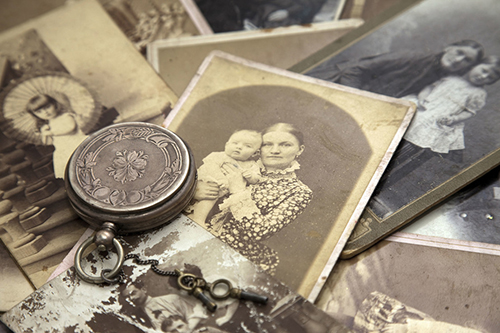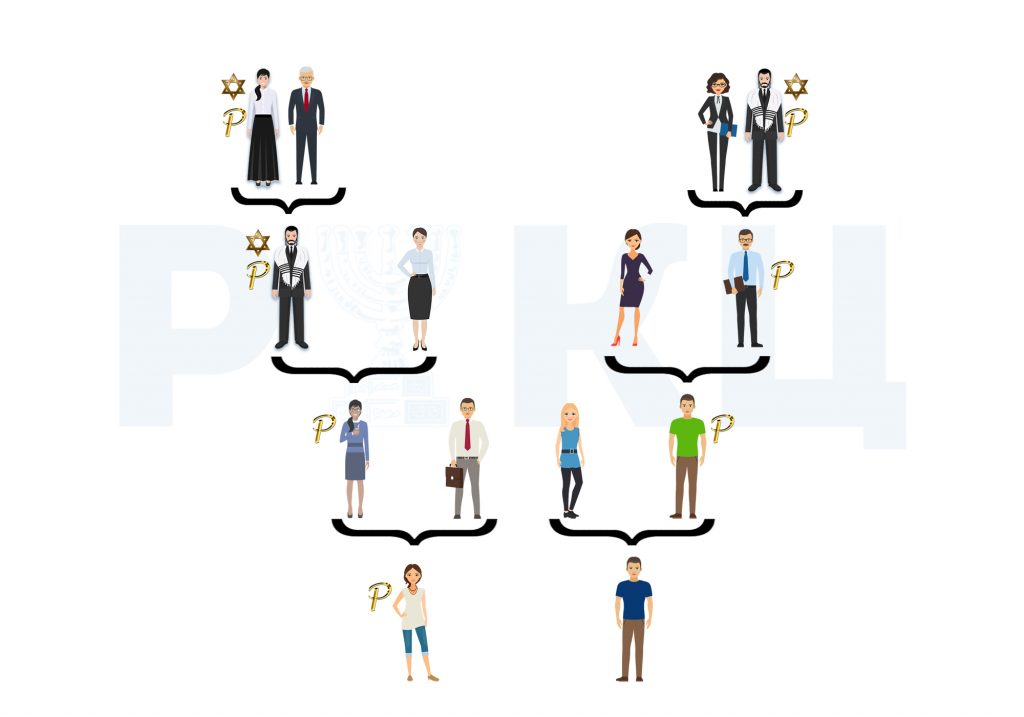Who is considered a Jew?
In Israel, Jewishness is defined according to the halakha – the traditional Jewish law, prescribed in the Jewish Holy Scriptures (Torah, Talmud). Halachic Jews are only two types of people:
- born to a Jewish mother
- those who have undergone the conversion procedure (converted to Judaism).
Even though, according to legal law, other groups of people can receive Israeli citizenship, religious law in the country is considered the main one. Even the courts and the Knesset rely on it when developing new laws. Let us consider both criteria of Jewry in more detail.
an Israeli citizenship specialist
Who is considered a Jew according to the laws of Israel (Halacha)
1.1. Jewish by mother:
For most peoples, nationality has always been determined by the father. Only in the Talmud, which dates back to the 2nd and 3rd centuries, does the definition of Jewishness through the mother begin.
In the sacred texts, this was interpreted in such a way that a Jewish man should only marry a Jewish woman, this is important so that the children in the family grow up in Jewish traditions, and the woman who lays the foundations of Judaism is responsible for the family hearth.
The same provision does not apply to women. A Jewess can marry both a Jew and a Gentile. Her daughters and sons will in any case be considered Jews.
1.2. Jews by Giyur
Despite the prohibition against marrying non-Jews, the Bible records many marriages between Jews and non-Jews. This is since Jews were considered all those who belonged to the Jewish religious community. That is, spouses with a different faith underwent conversion and converted to Judaism.
The national and religious aspects of Jewry have been inextricably linked throughout the history of the Jewish people. And one of the main halachic authorities, Saadia Gaon, said: “Our nation is a nation only thanks to the Torah.” Therefore, everyone who accepts Judaism as their religion becomes part of this nation.
The conversion process is a long and multi-stage immersion in Judaism. Conversion to a halachic Jew or Jewish woman can take several years, and all these years the applicant must attend conversion courses and the synagogue, observe all the conditions of Shabbat (do not work from Friday evening to Saturday evening, do not use electricity, do not touch a pen or pencil, etc.). etc.), observe Jewish holidays and traditions, adhere to the rules of kashrut and much more.
In many rabbinates, it is considered correct to refuse those who wish to be converted several times to test the strength and truth of a person’s intentions. And even after repatriation, the new convert must prove to the community his true zeal to be a Jew.
In recent years, there has been a powerful public discussion in Israel about recognizing a person as a Jew through conversion. The Israel Our Home party, on the basis of David Rotem’s reforms, proposes leaving the decision on the recognition of conversion to the Chief Rabbinate of Israel. Discussions about the adoption of the Law “On Conversion” have been going on for more than a decade. Indeed, in the case of such a decision, the recognition of a person as a Jew remains with a narrow group of Orthodox rabbis. The law also calls into question the status of converted Jews who have already converted and live in Israel in a community that is not approved by law.
Who can apply for Israeli citizenship
The “Law of Return” of 1950 gives the right to repatriation not only to halachic Jews, but to all persons with Jewish origin up to the third generation. It does not matter which line (male or female). Representatives of the Israeli parties argued for a long time before making this decision. There are still Orthodox who seek to change the law and ban repatriation for non-halachic Jews.
an Israeli citizenship specialist
But despite ongoing discussions, today Israeli citizenship can be obtained by:
- those who have completed giyur;
- halakhic Jews, including widowed ones;
- their spouses;
- their children and grandchildren;
- spouses of children and grandchildren;
- adopted children.
Thus, given your maternal grandparents were Jewish, then you are considered third generation and may qualify for Israeli citizenship. If the great-grandfather was a Jew, then there is no such possibility.
* The Star of David denotes those who are considered Jews according to Halakha;
** The letter “P” denotes those who have the right to repatriation due to Jewish roots;
*** The infographic shows that citizenship can be obtained by those whose great-grandmother was Jewish, but not by those whose great-grandfather was the last Jew in the family.
How to prove Jewishness
Usually, people prove their Jewishness to obtain Israeli citizenship. In any other situation, there’s no proof required.
In the case of proving the roots, the repatriate has a long way to go, but it will still be easier than converting. Usually, the whole repatriation process takes from 1 year to 2-3 years. The duration will depend on several factors:
- what documents the family initially has;
- whether there is knowledge about where and how to look for documents;
- what evidence can be found;
- what the line at the Israeli embassy at the time of application is;
- whether the consul will schedule follow-up appointments due to lack of evidence.
The proof of Jewish roots is divided into 2 main stages—the collection of documents and the passage of a consular check.
First step
At the first stage, it is necessary to find the maximum number of documents that confirm the relative’s Jewishness. And also collect all the documents that confirm your direct relationship with him.
For example, if your grandfather was a Jew, then you need his documents, which say that he is a Jew. You will also need your birth certificate, which says that your father is your father, and your father’s birth certificate, which says that his father is your grandfather. This is the most successful and shortest way to prove kinship. Often the birth certificates of someone from the family can be lost, and then you have to use other evidence, sometimes even indirect.
Read more about finding documents to confirm Jewish roots in our article. There we tell you what documents you may need and where to find them.
Second step
At the second stage, you need to apply for repatriation and sign up for a consular check at the Israeli Embassy. The waiting period can be up to six months, depending on the city and season. Therefore, you can apply even before all the documents are collected, and reduce the total time of repatriation.
The whole family, including small children, appears to a meeting with the consul. You must have filled in questionnaires and all documents correctly to confirm the roots. In addition to the main papers, they bring additional ones that were not attached to the application, as well as circumstantial evidence (photos, letters).
In our article on passing a consular check, you will learn what the consul pursues, what questions he can ask and how to behave correctly so as not to cause doubts.
The consul may send the applicant for additional documents if he considers the evidence insufficient. Then you have to sign up for a meeting again and wait another six months. Therefore, it is important to think cautiously about your line of argument and not to miss anything.
If you doubt that your documents are sufficient for proof, you can contact our specialists and get professional advice. Our specialists will make sure that you pass the test the first time, like the rest of 99% of WRAI clients.
How to be considered a Jew
If you are not a descendant of Jews, then you will no longer be able to become a Jew by kinship. This means that the only way for a non-Jew to repatriate is to convert. As we wrote above, nationality and religion for Jews are very closely connected.
It is significant to understand that converting to Judaism is a serious decision. It must be accompanied by a strong desire to change your life and become part of the Jewish people. If you want to convert to Israeli citizenship, consider other options. Israel gives citizenship based on a long stay in the country on a work visa. This is an easier and more honest way.
You can repatriate if the State of Israel recognizes you as a Jew, and according to the law, only official state conversion procedures are recognized.
The procedure itself consists of several stages:
- The opening of a “personal file”, which occurs at the first meeting with a representative of the rabbinical court;
- Attachment to a fellow rabbi, Torah study, and observance of the commandments (usually throughout the year);
- An interim meeting to decide whether the applicant is ready for a rabbinical trial;
- Meeting of the rabbinic court, examination, and decision on the candidate and his family;
- Conducting the ritual part of conversion (dipping into the mikvah for any candidate and circumcision for men);
- Confirmation that the candidate continues to lead a Jewish life. A year later, he must send a recommendation to the rabbinate, and only then can he sign up for a consular check.
an Israeli citizenship specialist

